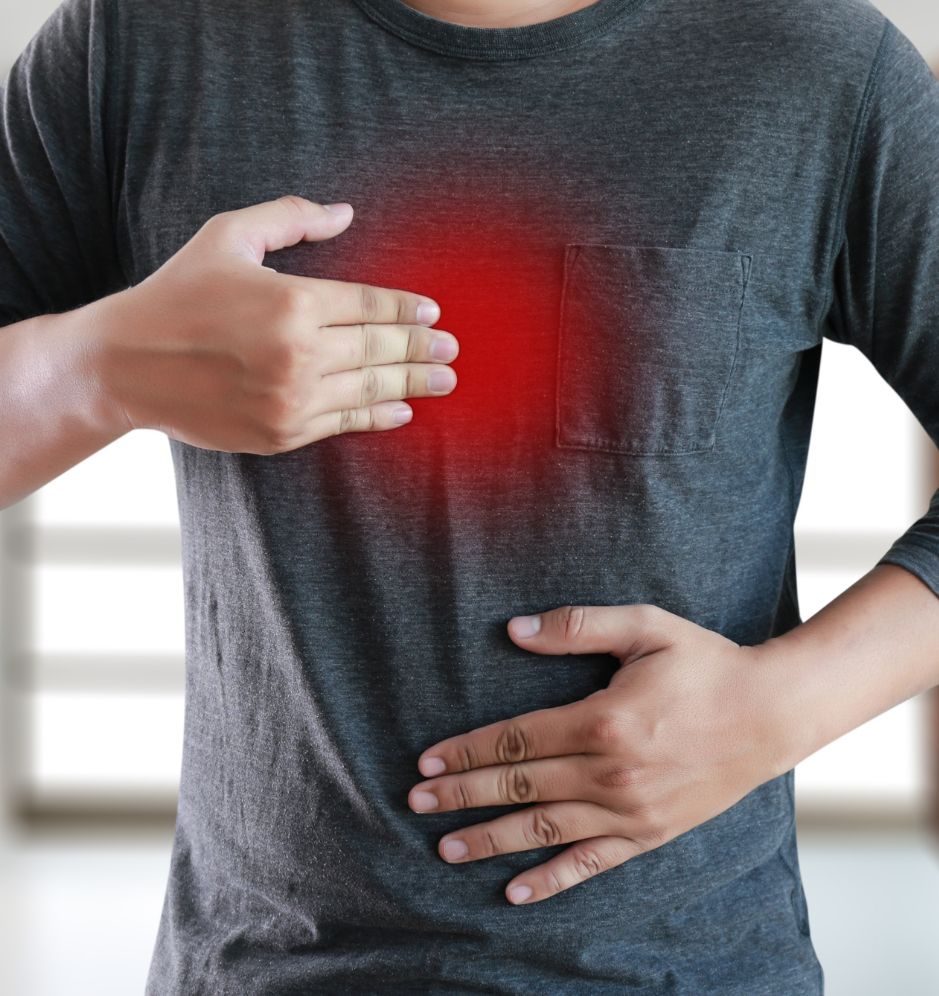Acidity & Gas
Acidity and gas are two common gastrointestinal issues that can cause discomfort and distress. Let’s break them down individually

Acidity: Acidity, also known as acid reflux or heartburn, occurs when the stomach acid flows back into the esophagus. This condition is often characterized by a burning sensation in the chest, usually after eating or at night when lying down. It can be caused by various factors such as spicy or fatty foods, caffeine, alcohol, smoking, obesity, or certain medications. Chronic acidity may indicate gastroesophageal reflux disease (GERD), which can lead to more severe complications if left untreated.
Gas: Gas in the digestive system is a natural byproduct of the digestion process. It mainly consists of oxygen, nitrogen, carbon dioxide, hydrogen, and sometimes methane. Gas can be produced by swallowing air while eating or drinking, or by the breakdown of certain foods in the large intestine by bacteria. Excessive gas can cause bloating, belching, flatulence, and abdominal discomfort. Certain factors like eating high-fiber foods, drinking carbonated beverages, chewing gum, or consuming certain foods like beans, cabbage, and onions can increase gas production.
Both acidity and gas can often be managed through lifestyle changes such as dietary modifications, avoiding trigger foods, eating smaller meals, maintaining a healthy weight, not lying down immediately after eating, and quitting smoking. In some cases, over-the-counter medications or prescription drugs may be recommended by a healthcare professional to alleviate symptoms and treat underlying conditions.
